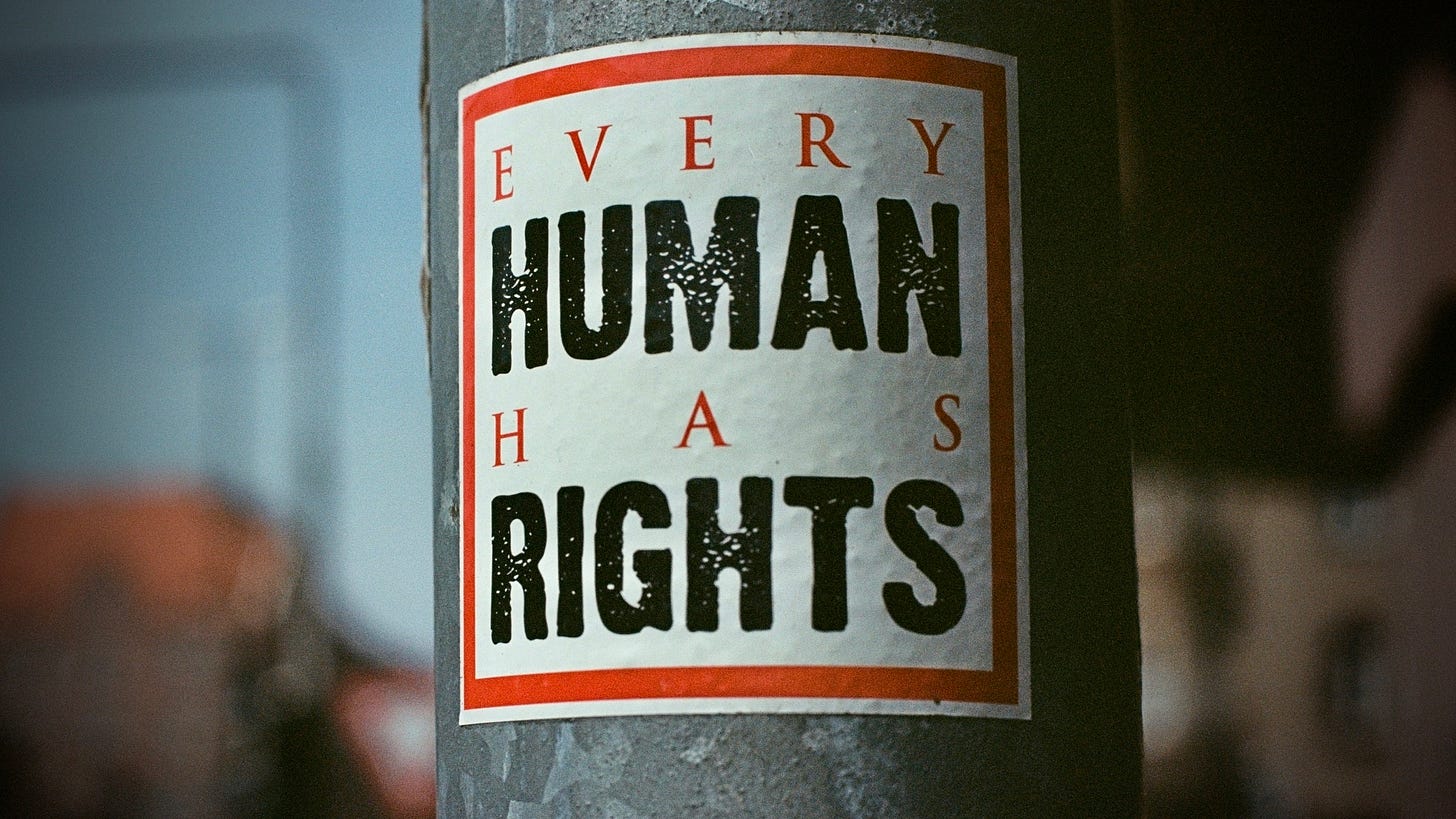Bad People Have Human Rights Or No One Does
Do you actually believe in human rights for all?
If there is a category of people who are not allowed to advocate for human rights, then no one has human rights. Human rights are universal or non-existent.
When someone claims that certain individuals cannot advocate for their human rights, it signals the end of the concept altogether. It doesn't matter what category is deemed “bad.” Once the moral principle that "bad people can be denied their human rights" becomes normative, human rights are dead.
The moment a category is created that is not allowed to assert their human rights, anyone who opposes human rights can accuse their opponents of belonging to that category. Bad faith accusations proliferate because they are the easiest way to silence opposition. If “bad” people are not allowed to assert their rights, then anyone who doesn’t like a certain right will call everyone who fights for that right “bad.”
I have personally experienced these silencing attempts. In my attempt to speak out about sexual abuse and genital cutting, I have endured attempts to silence me by claiming I am in a “bad” category. Some accusations have even come from people who claim to support human rights. While these accusations are false and disproven, simply denying bad faith accusations misses a larger point: even if every bad label thrown at a person were true, they’ve still got rights.
Human rights exist whether or not someone is a good person. It’s easy to say “everyone has human rights” when talking about a lovable group like babies. Yet the statement “everyone has human rights” applies to less lovable groups as well. Here are some groups that have human rights: racists, sexists, white supremacists, antisemites, fascists, communists, feminists, chauvinists, bigots, conspiracy theorists, Zionists, extremists, the far-right, the far-left, the evil people, and your worst enemy. Everyone means everyone, or it means no one. If you are not comfortable acknowledging that any of those groups have human rights, you don’t believe in human rights.
If someone tries to stop a “bad” person from advocating for human rights, they don’t believe in human rights. They believe in destroying the “bad” people. The only difference between them and the people they consider “bad” is who they think needs to be destroyed.
Human rights are separate from the question of whether or not the person advocating for rights is a good person. They might be the worst. It doesn’t matter. They still have rights and the right to advocate for those rights. Advocating for human rights is good. If a bad person advocates for human rights, they are still doing good. If someone tries to stop a “bad” person from asserting their rights, they are worse.
If you think another issue is more important than human rights, you don’t believe in human rights. If another issue can trump someone’s rights, those rights don’t exist. Anyone who wants to suppress human rights can do so in a state of exception by claiming they are working on a more important issue that justifies silencing human rights activists. Either the “bad” people have rights, or no one does.
Most people don’t believe in human rights. They believe in punishing bad people. “Bad” might be defined differently by different people, but almost no one believes in universal human rights, because universal includes the “bad” people too. What do you believe in?
P.S. When I realized how few people believe in human rights, including those who call themselves human rights activists, I wrote Children’s Justice. If you want to know how to argue for your needs in the dominant ideology, read Children’s Justice.


